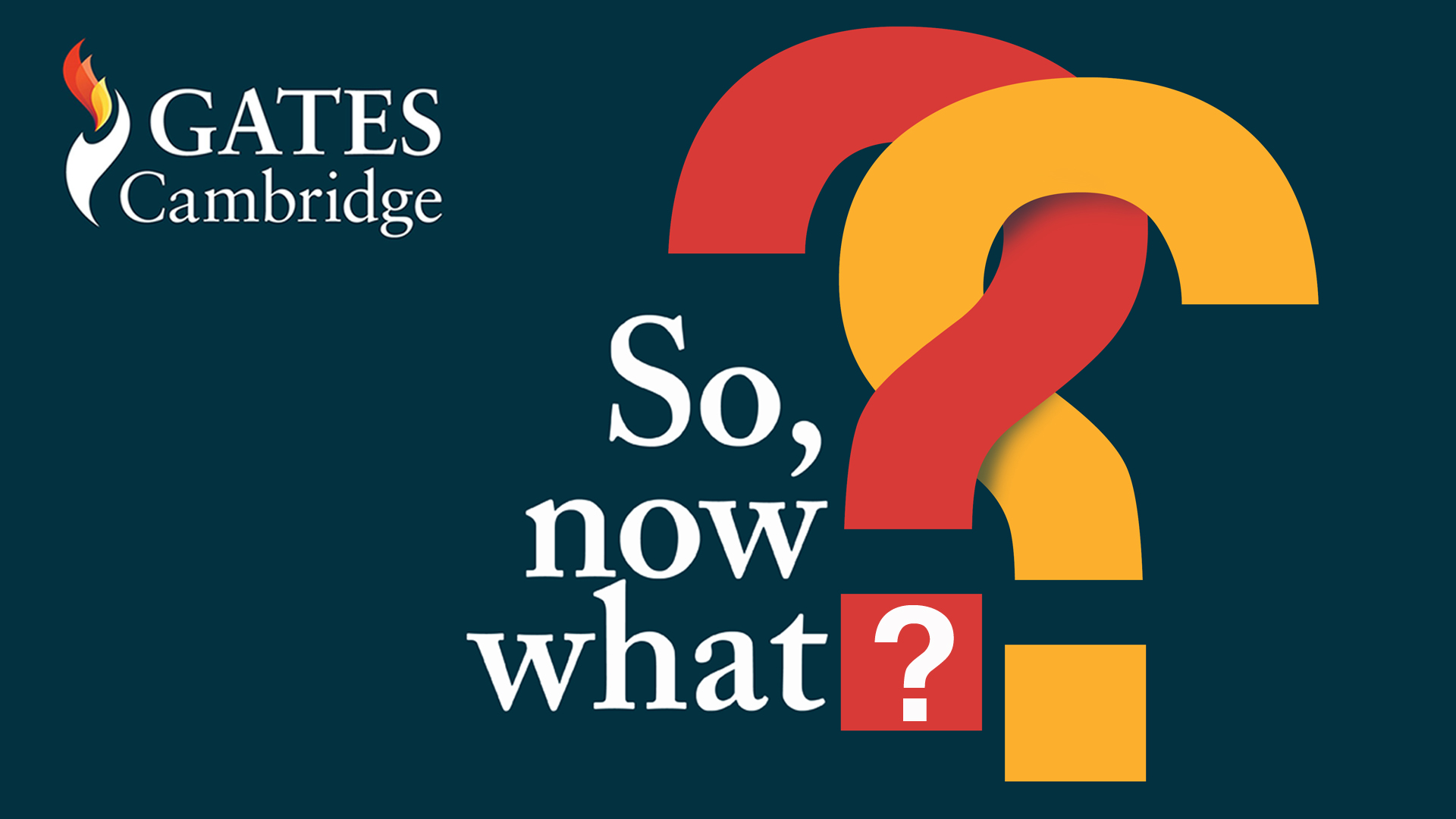
Tara Westover, Aliya Khalid and Thabo Msibi discuss what education is for in the second episode of the Gates Cambridge podcast.
I think all the policies in the world that we could put in place, the grants, the funds, the scholarships, the universities we could build, won't matter if there's not a ladder or a pipeline to get people there.
Tara Westover
Best-selling author Tara Westover [2009], researcher Aliya Khalid [2015] and Thabo Msibi [2009], Deputy Vice Chancellor for Teaching and Learning at the University of KwaZulu-Natal are the guests in the second edition of the Gates Cambridge podcast – out today.
So, now what? sees the three Gates Cambridge Scholars tackling the issue of what education should be for. They explore their own perspectives and discuss their own powerful personal stories, highlighting the importance of diverse stories in education, the impact of education on women and gender and the power of education to challenge norms and beliefs.
They also emphasise the role of education as a journey of self-discovery and unlearning, as well as a tool for social justice and empowerment.
In addition, the episode discusses the need for curriculum reform and inclusivity, the role of technology in education and personal stories of overcoming educational challenges.
The speakers conclude with a call to take individual action to support education and work towards achieving sustainable development goal number four. They stress the idea that small actions can have a significant impact on making a difference in the world and emphasise the power of individuals to create change within their own sphere of influence.
Tara Westover is a memoirist and historian. Her first book, Educated (2018), debuted at #1 on the New York Times bestseller list, and was a finalist for a number of awards, including the National Book Critics Circle Award, the LA Times Book Prize, and the PEN/Jean Stein Book Award. The American Booksellers Association named it the Nonfiction Book of the Year, and to date, the book has been translated into 47 languages. For her staggering impact, TIME magazine named Westover one of the 100 Most Influential People of 2019, and in 2023, she was awarded the National Humanities Medal by President Biden.
Thabo Msibi is the Deputy Vice Chancellor for Teaching and Learning and a professor of Curriculum Studies in the School of Education at the University of KwaZulu-Natal. Msibi has published research in South African and international journals and books and is author of the book Hidden sexualities of South African Teachers: Black male educators and same-sex desire. He has also co-edited a book entitled Gender, Sexuality and Violence in South African Educational Spaces, with Deevia Bhana and Shakila Singh. In 2022, Professor Msibi was appointed by the Basic Education Minister to serve on the sixth Umalusi Council. He was subsequently elected as the Deputy Chairperson of the Umalusi Council.
Aliya Khalid is a Lecturer in Comparative and International Education in the Department of Education at the University of Oxford, UK. She works on issues of educational equity with a focus on gender. Her areas of interest include the capability approach, negative capability, epistemic paradoxicality and justice, Southern epistemologies, politics of representation and knowledge production.
The third episode on the climate emergency will air on the last Tuesday of March with Ramit Debnath, [2018], Assistant Professor and Cambridge Zero Fellow at the University of Cambridge, Victoria Herrmann [2014], Principle Investigator of the National Science Foundation funded Arctic Migration in Harmony project, Assistant Research Professor at Georgetown University’s Walsh School of Foreign Service and former managing director of The Arctic Institute, and Songqiao Yao [2014], founder and CEO of Wildbound.earth, an innovative nature-inspired education and sustainability consulting venture based in Beijing.
*You can download the podcast by clicking here or by clicking on the below.












